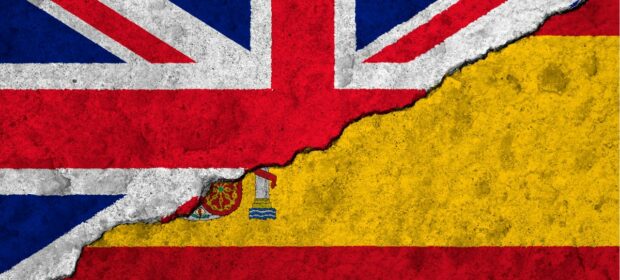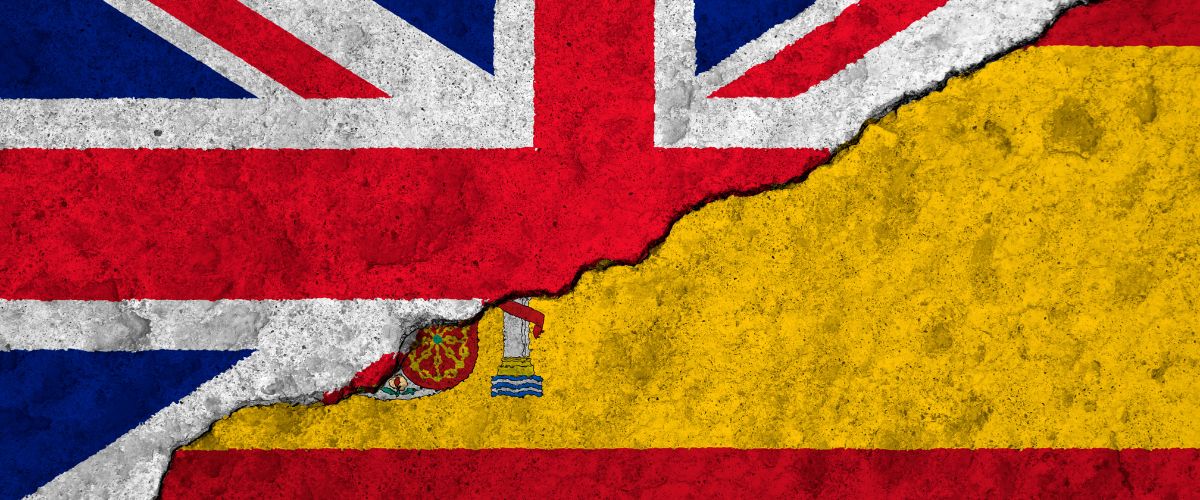Historically, the concept of “domicile” has been central to determining UK Inheritance Tax obligations for British citizens. Many British expats found that despite decades abroad, they were still deemed UK domiciled on their demise, exposing not just their UK assets but their global estates to UK Inheritance Tax.
Major changes are ahead for British expatriates living abroad
By Jeremy Ferguson
This article is published on: 24th March 2025

New rules which soon come in to effect mark a major shift in this area, particularly impacting British expatriates who have been living overseas for extended periods, replacing the concept of domicile with new long-term residence (LTR) rules. Under these new rules, the test for liability to UK Inheritance taxes will be based on your residency.
For those of you who have lived outside of the UK for at least 10 of the last 20 years, you will now be classified as non-UK long-term residents. This change means your global assets (except UK based holdings such as pensions, property, investments and bank accounts) will be exempt from UK Inheritance tax.
Therefore, if you are intending to remain out of the UK indefinitely or you have already been out of the UK for more than ten years, you should seriously consider moving assets outside of the UK.
As an example, if you hold funds in a UK bank account in GBP then these will remain subject to the old IHT rules as they will be classed as a UK asset, so if the monetary amounts are substantial enough, it makes perfect sense to move these funds outside of the UK. This is something we can help you with by explaining what options are available and where the best interest rates can be found. (This could even offer you the chance of deferring annual taxes here on any interest earned).
On one hand they giveth, however on the other hand they taketh away
An expression many of you will be familiar with. For those of you who watch the UK news, many will be familiar with the plight of the UK farmers who are up in arms about the change in the tax treatment of their farms on inheritance. What amazes me is the fact that in the same budget, the Government announced that UK pensions are now going to form part of your assets assessed for Inheritance taxes, whereas previously they were exempt. I explained earlier about the favourable changes if you live outside of the UK, so on one hand they giveth, but now your pension will be subject to UK Inheritance tax, they taketh away!

This is a real sting in the tail if you have planned to leave your pension to your children due to the tax efficiency this previously offered. If we look at the worst case scenario under the new regime, you have a UK pension and pass away after the age of 75, your beneficiaries could now be hit with a 40% UK Inheritance tax charge and on top of that there could be further tax liabilities when they choose to take income (of up to another 45%…….). I am simply amazed that these facts aren’t getting the column inches the farmers are getting. Again, because of this there may be sense in moving as much of your pension out of the UK scheme as possible.
As with anything as important as this, planning and taking action could save you and your family a fortune in unnecessary taxes. We are here to help explain the issues, sensible ways to deal with them and ultimately helping you to make a well informed decision as to what you should or shouldn’t do..
An unusual part of the job
By Jeremy Ferguson
This article is published on: 24th December 2024

I am writing this at the end of another year in which I found myself helping people relocate from the UK to retire to Spain. For many, this was a lifelong dream, for others it was a case of simply having had enough of the UK.
The process is now a lot more involved than it was before Brexit, and my role tends to be focused on making sure all of their finances stack up, and being as tax and investment efficient as possible once they arrive. There are certain things to consider before you leave the UK; an example could be taking your pension lump sum in the tax-free environment of the UK, or making sure your house sale doesn’t create tax implications once you become Spanish resident. This typically revolves around the timing of your move here, which can be critical in relation to effective tax planning.
What has really been obvious to me this year with most of my new clients is the ‘unusual part’ of my job that I had not really come across too much in the past. Most people have been used to making money all of their working lives, be it in the form of receiving a salary each month, or making profits from self-employment. But when retirement comes along, income from working suddenly stops and in the case of people retiring to Spain, they suddenly find themselves in a situation where they no longer receive ‘earned’ income. For many, this is a very difficult situation to deal with psychologically, as they become fearful of spending money.
And this is the unusual part I am referring to, as I find myself spending a lot of time with people running through their finances and expenditure, showing detailed projections of how long their money will last going forward. Of course, it is very difficult as no one knows how long they are going to live, and no one knows what their money will be making going forward, but by making sensible assumptions on both considerations a pretty realistic picture can be painted.

This is the point at which I really emphasise the power of ‘passive income’, and help people to understand its relevance and value. Simply put, even though you have stopped earning money when you retire, it doesn’t mean you have stopped making money. With interest on bank deposits, and growth on investments and pensions, whilst you may be enjoying life relaxing on the beach or playing golf, your hard-earned savings are working away in the background for you. This is why it is so important to keep a close eye on your assets, making sure they are working as hard as possible for you. I always refer to this as passive income.
Over time people become more relaxed about their new situation in retirement, but to start with it can be very difficult to adjust. This is why I spend a lot of time talking with people, explaining that as they ease into retirement this is something that will start to take a back seat in their daily worries, and spending money will become less of a stressful issue. Regular reviews of their financial situation are a great help when it comes to ‘proving’ things will be ok!
If you would like help when it comes to planning your retirement, then please do not hesitate to get in touch.
And let’s hope 2025 is a prosperous year for us all.
Creating THE important Folder
By Jeremy Ferguson
This article is published on: 3rd September 2024

I have recently had to deal with the passing of one of my clients, and this really brought home the importance of an article I wrote over 5 years ago now.
My client was single and read my article about making a folder containing all of the important things someone may need to deal with in the event of her demise.
We did this together, and I am so glad we did. For her heirs, dealing with Probate has been so much easier than it would have been (importantly saving a huge amount in additional legal fees) and the distribution of the estate happened very quickly.
I keep reminding people, we all spend time every year making sure the ITV for the car is sorted, house insurance and car insurance policies are up to date, tax returns are filed etc. so please put some time aside to create ‘ THE Folder’ as I like to call it?
So what is THE Folder?
It is a single file (digital or physical) where you keep all of your important personal and financial information together. It allows easy access to these documents in the event that you are no longer around to help. It is really important to have it in place when one family member takes the lead on the family finances; this includes paying bills, managing accounts and storing documents. Even if that is not the case, it is an important exercise.
So what should be in THE Folder?
All documentation that is relevant to running your household with regards to finances, such as:
- Birth, marriage and divorce (if applicable!) certificates
- Bank account details, including online login details
- E-mail and social media account details and logins
- Life assurance policies
- Funeral plan policy
- Pension documentation and statements
- Investment documentation and statements
- Wills
- House ownership deeds
THE Folder can be very simple, and I always suggest contact details for each of the relevant policies etc. should be clearly marked as well. Also, make sure that when THE Folder is complete, you sit down together and explain all of the information it contains, as it will be as useful as a chocolate tea pot if you don’t both know exactly what is there.
Is it worth the effort?
Well, I think it is worth the effort. At a time of loss it can be stressful enough, without having to try to piece together the deceased’s financial affairs. This can be a really difficult time for family members, even more so if your support network, typically children, is back home in the UK.
However, preparing THE Folder is much more than just avoiding stress; if you leave behind an administrative nightmare, you could delay access to inheritors’ funds and potentially cost a small fortune in legal fees.
To give you an example of this, the UK Department of Work and Pensions estimates that there is currently more than £400 million sitting in unclaimed pension pots in the UK.
Which is best…..physical or digital?
This comes down to personal preference. It can be done by either creating an electronic file that survivors can access in the event of death, or an actual paper file. An electronic file can be stored on your main computer, in the cloud or on an external hard drive. Make sure everyone knows how to access the computer, cloud or hard drive though!
Alternatively, if you use a physical folder to keep all of the important information together, make sure it is large enough to keep everything together. The good old shoe box has been a long time winner in this department, although a well organised file does make life a lot easier for everyone.
For what it’s worth, I find lots of people prefer paper and are happier with hard copies of everything. I personally prefer digital, which I have shared with some trusted family members. It may even be worth considering asking your legal advisers to hold the folder on your behalf (electronic is much better for this reason), so a simple visit to them if anything happens means they can assist you far more easily with everything.
Typically they will want all of the information it contains anyway, so by saving time when it becomes relevant, the small annual charge they may make for holding the information will normally be offset.
And finally…
I have already stressed this, be sure to tell someone about it! There is little point going to the effort of creating such a folder if no one knows of its existence or where to find it…..
The Spanish Capital Gains Tax Trap
By Jeremy Ferguson
This article is published on: 5th July 2024

When to sell your UK home and whens best to move to Spain
It’s a big decision to make, selling up in the UK and moving to Spain, but it’s also a decision that needs careful planning when it comes to making sure you don’t get caught up in the Spanish Tax system unnecessarily.
The best way to explain what I mean is to look at a typical example.
Mr and Mrs Smith decided enough was enough, and they put their home in the UK on the market with the intention that once it sold, they would move to Spain. The house sold to the first viewer for £500,000 in February 2023, with a quick completion needed, so things moved fast. The couple had owned the house since 1980 when they paid £100,000 for it, so a nice £400,000 profit.
If they Upped sticks to Spain in March of 2023, then this could have terrible implications, which many people aren’t aware of. Essentially, in many circumstances (not all, depending on your age etc.), Spain will tax you on the capital gains made on a UK property if you are considered a tax resident in Spain in the year in which you sell the property, even though it was your main residence. This of course is not what we are used to in the UK.
So, in this example, because the couple moved to Spain in March of 2023, they will spend more than 183 days in Spain this year, deeming them tax residents in 2023. Therefore, the £400,000 profit made on the sale of the UK property will first need to be converted to Euros, and then capital gains tax will be applied at a rate of between 19% and 26%, meaning a tax bill due in 2024 of approximately €112,000. Imagine the shock when sitting with your tax adviser in 2024 to file your first Spanish tax returns, and he informs you how much tax you will have to pay.
So this is exactly why careful planning needs to take place when sorting out the timing of your move to Spain.
In this theoretical example, by simply delaying the move until after the summer, then Mr and Mrs Smith will no longer have spent 183 days in Spain in 2023, and will have still been UK tax residents that year. By doing this they will have completely avoided any tax implications here in Spain, a huge saving for them.
So, the cost of a short term rental after selling their home, or staying with family, may seem a bit of a hassle, but it will certainly be worth it in the long term.
There are also other things to consider. Tax free lump sums from UK pensions are taxable here, as are the profits on any ISAs you may have, so it’s not just selling the house that needs careful planning when timing your exit from the UK.
Make sure you leave the UK in the most tax efficient way before starting the next stage of your life here in Spain.
Watch the podcast with Jeremy Ferguson and UPSTICKS.ES below
Proposed changes to UK Inheritance tax
By Jeremy Ferguson
This article is published on: 24th April 2024

Are you British and living in Spain?
One of the hardest things I have to explain to a lot of clients who live here is what the difference is between residence and domicile. My objective is always to explain things in a way that makes sense and is understood, so typically endeavouring to simplify things as best I can, very often using analogies or examples that will help me get the relevant point across.
Residence is simply where you reside, typically, where is your ‘main’ home? That answer will then normally determine your residence, so if you live in Spain, you will be a resident here. That will then normally (not always, but in the majority of cases) also determine where you will be paying tax.
Domicile however is something very different, but I always like to say that in most cases your domicile is simply determined by where you were born. So if you were born in the UK, having spent a large part of your life there before moving to Spain, your country of domicile will highly likely be the UK.
Over the years I have seen many articles published here about how you can do certain things to change your UK domicile, and they were always full of so many ifs and buts. Without going into detail, the reality is, it is really quite difficult to lose your UK domicile. However, the reason people would try and do this is usually focused on UK Inheritance Tax (IHT) planning. This is the bit people have sometimes struggled to comprehend. If you are UK domiciled, you will pay IHT on your assets outside the UK, regardless of where you live. So ‘clever’ people would try and help you lose your UK domicile so you could avoid UK IHT in the event of your demise.
That could now all be a thing of the past, as the UK Government has recently proposed changes to how IHT is calculated. Essentially, what they are proposing is that IHT in the UK is moved to a basis where residency, and not domicile, determine whether the estate on death is subject to tax in the UK or not.

Under these proposals to move to a ‘residence based regime’ from 2025, the estates of Britons living abroad will no longer be charged UK IHT on their estates globally, as long as they have lived outside of the UK for more than the last ten years.
This could have significant and valuable implications for the amount of tax levied on death on the estates of Britons who have lived here for more than ten years. For many people, this could be very positive and welcome news.
Being the cynic I am, the question has to be asked, why would they do this? Well, as an example, currently the UK is a very attractive place to own property and be resident as a non-UK domicile. This creates many favourable tax breaks for these people. This is one of the reasons we hear of the huge swathes of property in London being in the hands of foreign owners.
Chancellor Jeremy Hunt announced in his most recent Budget that generous tax breaks for non-domiciled individuals will be replaced with a“fairer system” from April 2025, with new arrivals to the UK paying the same tax as everyone else after four years. This of course means that if you are changing to a residence based test in the UK, then people who no longer live there would, or should, be treated with similar fairness.
So, retirement abroad could suddenly become a much more attractive prospect for many people as a result of this change, so fingers crossed it actually happens.
If you have any questions about being a Spanish resident and Inheritance Tax, please feel free to get in touch to see if I can help answer things in a clear and concise manner.
Exciting times ahead
By Jeremy Ferguson
This article is published on: 26th March 2024

For those of you who are retirees, you will have lived through an incredible age of change and prosperity. You will remember the days of stopping the car and going to a phone box to make a call, possibly dictating a letter for a colleague to type for you, waiting for the post each morning to see if your recent job interview had been successful. Cars with no seat belts, and only the well-off flying around the world for holidays etc. On and on I could go, but you get my point, I hope.
Most of us would have started to write emails in the mid 90’s, and since then the advances in the use of the internet have increased exponentially. Mobile phones now are quite simply the most amazing multi-media tools, with what seems like the whole world obsessed with them. Maybe they aren’t a good thing for society, only time will tell.
But what I do know is the fact that you can use them to navigate anywhere, watch TV, read the newspaper, write emails, pay for your car parking online, translate between languages etc. All of this just never ceases to amaze me. Could you imagine telling someone a decade ago, this is where we would end up with mobile phones? Overall, this technology at our fingertips is incredibly useful and has changed the way we live.
The next decade is going to see an ever-increasing transformation in the use of technology, not only in our daily lives, but also in business and commerce. I am sure you have all heard of the Artificial Intelligence (AI) race that is underway at the moment.

AI technology has recently been on trial in a Scottish hospital, analysing mammogram data, and managed to spot cancer in a number of patients which had been missed (due to its tiny nature) by the consultants. This is a perfect example of how this technology can be used to improve our lives.
There are four main areas of ongoing technological advance that may be worth observing over the coming years. Companies operating in these sectors offer huge growth potential for their shareholders.
There are AI companies, such as Microsoft, Amazon and Canon; and those specialising in financial technology (Fintech), Sage being prominent in this market, as well as Ricoh; there are robotics specialists, IBM and Adobe for example; and finally, the one we are all bored of hearing about, energy storage – many of the companies in this market are new, so there are few familiar names in there, but SAP is one name some of us may recognise.
The advances we are seeing in these areas are quite incredible, and if you think about it, the technology itself helps to further increase the speed of the new developments. Businesses who embrace these technologies to maximise their efficiency will all benefit from these advances. The knock-on effect will be far reaching and ever present in everyday life.

My clients are retirees here on the Costa Del Sol, now living off pensions and investments they have accrued over the years, and one of my responsibilities is making sure they are getting the most from those investments. With the world changing so quickly, it is essential we pay attention to the management of those funds, in particular to ensure that whoever is making the investment decisions is forward looking in their approach, and importantly understands the new world evolving around us.
Please feel free to email me if you would like to discuss your existing investments and pension funds, to see whether we can help make them work as hard for you in retirement as you did in your working life to accrue them.
UK term deposit rates as a resident of Spain
By Jeremy Ferguson
This article is published on: 1st November 2023

This is something I am being asked a lot at the moment, as so many of my clients have money on deposit in UK banks.
Many of them are offering healthy fixed term deposit rates at the moment to clients, but very often my experience is the bank will only allow customers who live in the UK to place cash into these term deposits. This only tends to come to light after speaking with them for ages on the phone to try and move your cash, after which they will very often ‘reject’ your request due to the fact you live here in Spain. Some banks are OK with that, but the majority are not.
There are also a few ‘downsides’ to these term deposits when you are a Spanish tax resident. To explain; if you were to invest in a 1 year term deposit offering 5%, then this will of course be taxed here in Spain at maturity. The complication comes with the fact that you have to file your tax returns in Euros. Imagine if you placed that one year deposit today, maturing in a year’s time in November 2025, and then assume a scenario where the exchange rate recovered from the 1.14 ‘ish’ we are seeing at the moment to 1.18 by the end of next year, (which is entirely feasible). You would have to declare the 5% yield in euros, which would end up at approximately 8.5% in this example. Tax will then be due on this amount, having the effect of significantly reducing your actual ‘profit’.
Of course it could go the other way but this is an issue, as each year the fluctuations can ‘disturb’ the actual amount you receive. This has only really come to light this year, as people have just not experienced yields on cash deposits for such a long time.
There is also of course the risk of placing your funds with the bank you chose, or institutional risk. The compensation scheme in the UK most people are familiar with will cover a deposit loss up to £85,000 per individual account. To utilize this as best you can it can get messy trying to hold money in many different banks. The reality for most people I deal with here is they tend to have a UK bank account from when they lived there. To try and open a new UK account when you live here is nigh on impossible, so spreading your risk by having a number of different accounts isn’t achievable.

However, a solution which deals with most of these issues is available. Without getting into too much detail, you can invest in a cash ‘fund’ run by one of the World’s biggest Investment Companies. Your money ends up being invested with nearly 200 underlying banks within the fund, so the risk of a bank failure is massively reduced.
Using the right structure to access this fund means you don’t have to pay tax on an annual basis as this will only be due when you cash in your investment, and therefore each year there is no need to consider the complications of the exchange rate issue touched upon earlier.
If rates were to rise further the fund will automatically take benefit from that, and so your ‘cash’ is being actively managed with no need for you to be doing anything.
The suitability of this solution of course depends on each person’s individual circumstances, but if you would like some more information, please do not hesitate to get in touch on the form below.
Thinking of retiring to Spain?
By Jeremy Ferguson
This article is published on: 27th July 2023

If like many people, you’ve become hooked on life in Andalucia whilst here on holiday from the UK, what is the reality of retiring here, and what considerations need to be taken when looking at it seriously?
Since Brexit things have changed somewhat with regards the hoops to jump through to obtain residency, and nearly all of the clients we work with have had to apply firstly for permission to live here full time if they are UK passport holders.
The most common route is to apply for a non Lucrative Visa, and all of the information you need for this can be found at www.upsticks.es Essentially you will have to make your application through a Spanish Embassy in the UK, supplying them with financial information, criminal record checks and proving you have the necessary private health care in place amongst others. This can take a few months and having someone like Upsticks do this for you takes away nearly all of the pain.
This is just the first part of the jigsaw, and you will need to make very careful plans with regards the timing of your arrival if you are selling assets in the UK, typically this is your home, as well as thinking about whether to take pension benefits and what to do regarding your other assets. The most obvious is making sure you take your pension commencement lump sum as a UK tax resident by nature of the fact this is tax free when living there. If you did this after moving to Spain and becoming a tax resident, this would no longer be tax free and would attract income tax here, so it makes perfect sense to deal with this as part of the overall planning for your move.
Then there is the issue of selling your UK home, as if you are deemed a tax resident of Spain in the year in which it happens, there can be Spanish capital gains tax applied to the ‘profit’ you have made when selling. If this is your main home, and you sell when a tax resident of the UK then we all know this doesn’t attract capital gains tax, so to get the timing wrong when moving here and falling into that trap is normally the most important element to plan.

If you have ISA’s in the UK and they are in profit, then again realising these whilst a UK tax resident is tax free. If you held onto these investments and sold them after becoming tax resident here, the profits will attract capital gains tax. In many circumstances it can make sense to realise the profits before leaving the UK, and then make alternative arrangements when you get here. There are options available for tax efficient in- vestment products here, but it is important you are fully versed in the pros and cons of these be- fore doing anything.
Nearly all of my time at the moment is taken up with helping people plan their relocation carefully, so when they get here everything is done in the most tax and cost efficient way possible. With anything like this, my favourite expression is ‘relocating is like eating an elephant, it has to be done a mouthful at a time’.
We have a useful guide on our website which deals with relocating to Spain in more detail, and this can be downloaded at spectrum-ifa.com, If you are considering a new life in Spain, please do not hesitate to get in touch so we can help you every step of the way. For most people the reason they want to move here is for a less stressful life, so making sure you take the right advice is critical to helping this happen.
The banking industry
By Jeremy Ferguson
This article is published on: 28th March 2023

What is wrong with the way some banks work nowadays? It seems to me you can run a poor show, and when things go badly wrong the central banks will bail you out, and then off you and your highly paid colleagues can go again to mismanage your way to the next catastrophe.
The one thing I explain to people time and time again is that when you deposit any of your hard- earned cash in a bank, the bank has it is on ‘their’ balance sheets. They can then use that to go off and lend money or invest in assets where they can make more money. So effectively, they are using your money to make themselves money. The problem is that a lot of what they do may need a long timeline to work, so if people start demanding their money in large numbers (known as a run on the bank), they may not actually be able to meet those requirements, hence they close the doors to withdrawals.
Years ago a run on a bank would take time, with people literally queuing around the block looking to withdraw their money from the person behind the counter. The trouble nowadays is that a run on the bank is so much easier to implement, with all of us having apps on our phones and laptops that mean we can ask for our money in an instant. That was one of the biggest issues contributing to the failure of Silicon Valley Bank in America a couple of weeks ago, and the start of this whole process of fear beginning again. Due to the frenzy of concerns about that bank being whipped up on social media, thousands of clients started to try and withdraw their deposits all at the same time. To say the run on the bank happened quickly would be an understatement.
It is interesting to see what happened by looking more closely at what went wrong there. The bank had a huge amount of funds on deposit, and although they were large lenders, they had a lot of excess cash doing nothing for them. They needed that to be making money for them so, in their view wisely, they bought a large amount of 10 year government bonds. They did this because government bonds are traditionally seen as safe and would earn a small return.

Then the Fed started raising interest rates in a bid to stem inflation. Of course, this then meant the value of the government bonds became more and more stressed the higher the rates went. Effectively the clients’ money was now in the wrong place and couldn’t easily be unwound. In simple terms, a pretty basic error which you would hope someone looking after your money should have been aware of.
As I write, the contagion this whole issue has caused in the banks is causing share prices to tumble again. It’s so frustrating when this sort of thing happens, as very often it’s the baby being thrown out with the bathwater, but unfortunately this is how the stock markets tend to be. Anyway, it never seems to change and the fact that the Fed raising interest rates has led to the banks ´´crumbling´´ is somewhat bizarre in my humble opinion, when they seem to think they know what they are doing!
I speak a great deal with clients about using ‘insurance’ based products to house their investments. The reasons and advantages are many but the most relevant point I like to make, and relevant to what I’ve been talking about, is when you invest your money in these companies it is physically off their balance sheet and held for your benefit only. That’s the polar opposite to leaving your money in the bank. Of course, the risk is then what you do with your money, but it’s a massive point that is regularly overlooked and gives people a high level of comfort.
If you are worried about your money and where it is at the moment please feel free to get in touch and we can see what alternative solutions may be available for you.
What a year this has been. Let’s hope next Year is better..
By Jeremy Ferguson
This article is published on: 22nd December 2022

At the beginning of this year the World started to ‘wobble’, set off by the Invasion of Ukraine, and rising murmurs about the likelihood of increased inflation, and with that the threat of rising interest rates.
Share prices in companies around the world quickly started to fall, shortly followed by the never-ending spiral of doom and gloom in the news, creating a continuously depressing stream of information showing the Worlds financial markets were taking a downturn. This all came as a bit more of a shock because of the unprecedented period of cheap money, and constantly increasing share prices everyone had become used to over the last ten years.
After the lockdowns I always maintained you couldn’t just stop the world turning without it eventually to have some sort of effect. It just took a while for it to come out in the wash – and now it has. A lot of the delay between stopping economies working, (and a noticeable effect), was the false security provided by what amounted to the printing and the subsequent handing out of money in many countries, to name but one of many factors that occurred during those crazy times.
Eventually, after the factories were closed and businesses shut, supply chain issues came to light. The backlog of empty production lines had to be dealt with. That, coupled with an imbalance between limited supply and a sudden surge in demand, rising transport costs, plus the knock-on effect of the War in Ukraine, have all resulted in inflation going through the roof.

Traditionally the central banks around the globe try and control inflation with interest rates, and at the moment they are raising them at one of the fastest rates ever seen in a bid to try and stem the current surge in inflation. The worry for next year will be whether they may slow things too much, as these things tend to have a time lag. We can only wait and see. Higher interest rates are not all bad news, as savers normally benefit from interest on their bank deposits, but this isn’t happening significantly to date. When they are being offered, my experience is that the bank will only allow relatively small amounts to be deposited in these savings accounts offering higher rates.
On top of everything already mentioned, other factors also came to a head this year – the UK started to feel a Brexit effect which has weakened overseas investor confidence and taken its toll on trade. Liz Truss’s infamous UK mini-budget caused UK Government Bonds to fall in value like crazy, and what is usually considered a safe haven for many clients and pension funds, took a drastic downturn.
Recessions normally have an effect on employment, but at the moment this looks ok. Interestingly however, if you look at the US, there are an estimated 4m people off work at the moment due to long covid, so figures there are certainly distorted.
So as you will already have gathered, 2022 really hasn’t been a great year!
Living in Spain is such a privilege for many of us. The doom and gloom out there at the moment seems so much more acceptable when you wake up to beautiful weather almost all of the time. The cost of living has risen, but in general terms Spain is still a lot cheaper to live in than the UK.
They say it’s important to count your blessings, and if the fact we live here is one of them, then I for one am looking forward to 2023.
If you fancy an overview of your finances, even if it’s just to reconfirm your plans are all well founded in light of the ever-changing world, please do not hesitate to get in touch.


